Health and Equity in Latin America
The debate over health care reform in the United States has echoes in Latin America. But across the region, a variety of attempts to improve health care delivery—with Chile, Cuba and Colombia offering starkly different approaches—has resulted in quality care still being largely inaccessible. Some Latin Americans benefit from access to good local and international … Read more
Drug Decriminalization: A Trend Takes Shape
Latin American frustration with the “war on drugs” is growing. Harsh anti-drug laws have failed to stem apparently rising drug use, and incarceration rates are climbing—up 40 percent on average in Mexico and South America over the last decade—with more drug users and low-level dealers behind bars. But high-level drug traffickers carry on with impunity. … Read more
[i]AQ[/i] talks to Wyclef Jean on the social responsibility of being a celebrity.
Read more about how to help in Haiti. Multi-platinum and Grammy-award-winning musician and producer Wyclef Jean made a name for himself in the 1990s both as a solo artist and as a member of The Fugees with his political and socially oriented hip hop. These days, he makes as many headlines as the United Nations … Read more

The OAS should not have lifted the 1962 suspension of Cuba’s membership.
This June, the Organization of American States (OAS) revoked a 1962 resolution that expelled the Cuban government on the grounds of its political and military links to the former Soviet Union. Many supporters of revocation argued the decision was overdue: after all the Soviet Union no longer exists, and the OAS had long since outgrown … Read more
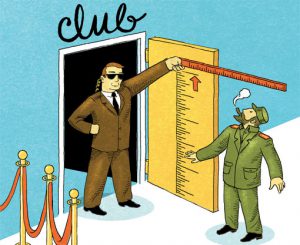
Cuba Hasn’t Been Given a Free Pass
In early June, the Organization of American States (OAS) in its General Assembly in San Pedro Sula, Honduras, approved an historic resolution on Cuba and created a pathway for that country to rejoin the OAS as member in good standing. This resolution was agreed to by consensus from all 34 member nations. It bridged a … Read more

Urban Health
Cities are crucial to public health. They are sources of cultural, technological and economic innovation, but they can also be breeding grounds for injustice, disease, environmental destruction, and violence. By 2030, they will be home to seven of every 10 humans on the planet. Through history, urbanization has changed our understanding of public health, and … Read more
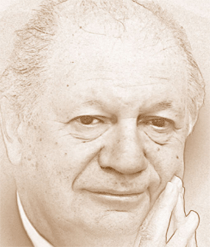
Negotiating a Green Commitment
Climate change will determine the path and future of human development for this and future generations. It will transform how we think and act into a more global way of understanding our collective destiny. With that comes the obligation to measure each country and each society’s impact on our global environment. Greenhouse gas (GHG) emissions … Read more
The Silenced Majority
Political polarization and facile media interpretation of events in Venezuela have obscured the nuance and human aspect of the past 10 years under Hugo Chávez. Read the full graphic article. To see more of Spanakos’s work on Venezuela, check out the first chapter of his forthcoming graphic novel, “The Revolution Will Be Drawn.”

The Myths and Costs of the Cuban Revolution
When the Cuban Revolution celebrated its 50th anniversary in early 2009, Raúl Castro boasted it would be around for another 50 years. Change, however, is in the air. For one thing, Fidel Castro, though still audible from the sidelines through his reflexiones, is in the twilight of his reign. His brother Raúl, now ascended to … Read more
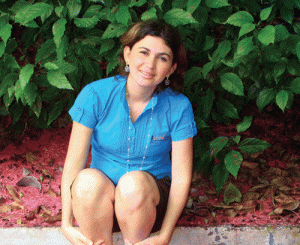
Civic Innovator: Lilian do Prado Silva, Brazil
Long before Muhammed Yunus won the 2006 Nobel Peace Prize for his work in developing Bangladesh’s Grameen Bank, microcredit had evolved into one of the most effective tools for helping would-be small business entrepreneurs pull themselves out of poverty. Brazilian Lilian do Prado Silva has been successfully applying that model in this hemisphere since 2001—with … Read more
Business Innovator: Andres Calderón, Colombia
Colombian entrepreneur Andres Calderón wants his country’s emerging film industry to do more than make a profit. He wants it to be a focus of national pride—and he’s investing to make it happen. In 2004, Calderón, 35, left a comfortable job at a hedge fund to create one of the first specialized film investment and … Read more
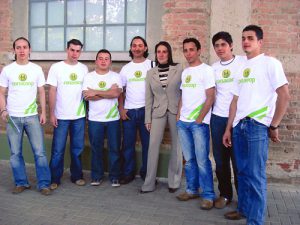
Political Innovator: Karina Bolaños, Costa Rica
Long considered one of the region’s most stable democracies, Costa Rica is beginning to show signs of strain. Nowhere is this felt more sharply than among the country’s youth. According to a 2007 survey of Costa Ricans between the ages of 15 and 35, just 50 percent of respondents said they believed democracy was the … Read more
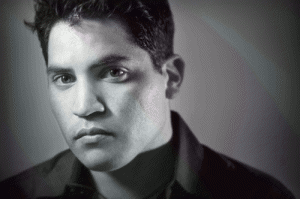
Arts Innovator: Diego Trelles Paz, Peru
The writers of the Boom generation, such as Gabriel García Márquez, Julio Cortázar and Mario Vargas Llosa, have dominated Latin American literature for so long that it has been difficult for new, young talent to get much attention. But things are changing. A new generation of hemisphere writers is now finally receiving the respect and … Read more
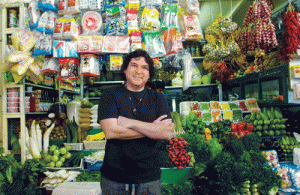
Peru’s Culinary Ambassador
Gastón Acurio wants to change the way you eat. One of Latin America’s most well-known celebrity chefs, the Peruvian is well on his way to putting his country’s cuisine on plates across the world. Acurio, 41, has opened more than a dozen upscale eateries in nine countries throughout the hemisphere, including a recently opened cevicheria … Read more
From the Think Tanks
Many of the hemisphere’s research institutions are focusing on the regional implications of the global economic crisis. The Inter-American Development Bank (IDB) produced two reports for its March 2009 meeting. Policy Trade-offs for Unprecedented Times, a macroeconomic study, argues that Latin America has withstood the crisis but cautions that the region is highly susceptible if … Read more


